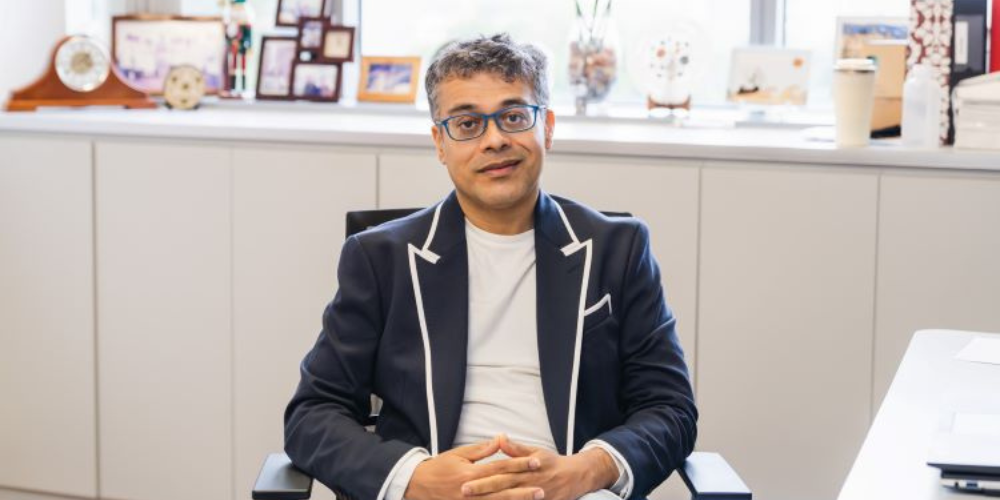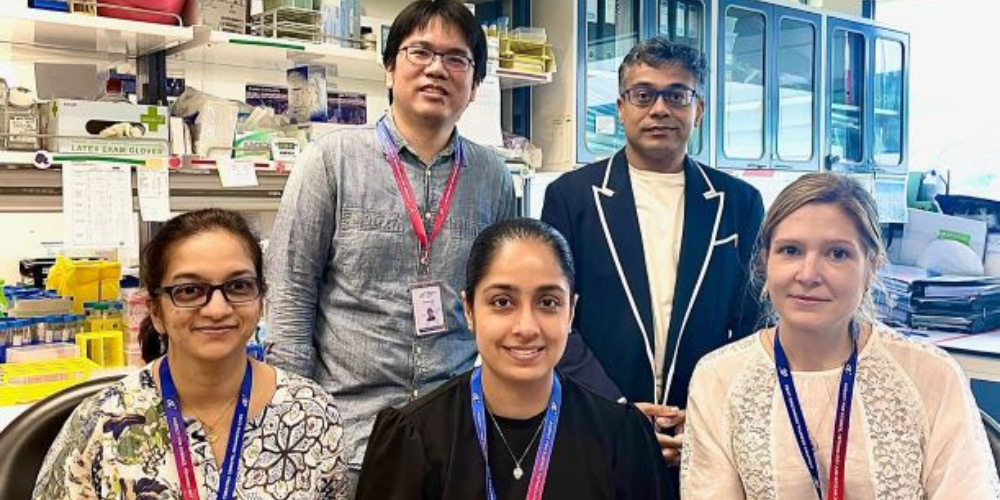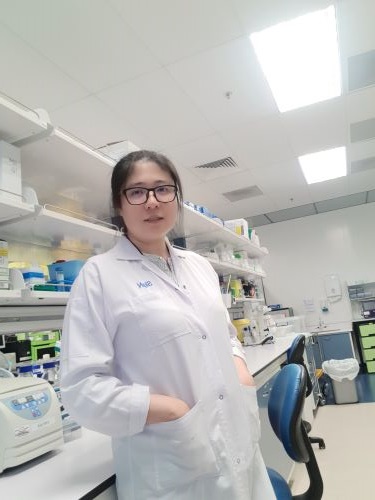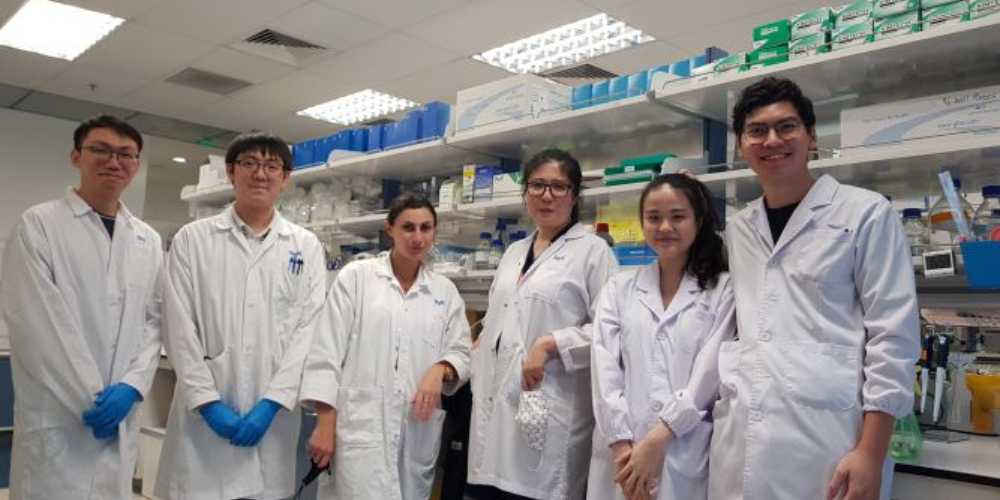Outsmarting Cancer with Our Body’s Own Defence System
At A*STAR’s Singapore Immunology Network (SIgN), scientists are working to advance immunology research for the development of novel treatments in areas such as infectious diseases, cancer, tumours and autoimmune dysfunctions.
A*STAR scientists execute their research in a stimulating and well-supported ecosystem with extensive ties to the international scientific community. Access to cutting-edge technologies as well as collaborative partnerships with local medical institutions and industry enable them to focus on basic and translational research which foster the discovery of new treatments and diagnostic tests for patients.
Principal Investigators Dr Subhra K. Biswas and Dr Wu Wei play key roles in SIgN, pursuing better health outcomes for Singapore and Singaporeans. While they work in different areas of innate and adaptive immunology, both scientists relish the excitement and challenges that come with pushing the boundaries of immunology research to advance life-saving therapies.
Read on as the two researchers share their research work, career highlights, contributions to science and advice for budding scientists.
DR SUBHRA K. BISWAS
Principal Investigator
Singapore Immunology Network, Human Innate Immunity Lab

For Dr Subhra K. Biswas, his father was the catalyst who set him on his immunology career path, but it was the various wonderful mentors he had worked with over the years that shaped his growing interest in the field.
He shares about his younger days, “I enjoyed biological sciences so my father, who was a nuclear scientist, suggested that I take up immunology because of its fundamental role in fighting disease.”
Dr Biswas went on to complete his PhD in Biotechnology (Cellular Immunology) at Banaras Hindu University, India, before pursuing his postdoctoral studies at the Istituto di Ricerche Farmacologiche “Mario Negri” in Milan, Italy, working on the first molecular characterisation of tumour associated macrophages under the guidance of renowned immunologists, Profs Alberto Mantovani and Antonio Sica. Dr Biswas was featured in the world’s most highly cited researcher list for 2021, published by Clarivate.
Dr Biswas’ research centres around innate immune cells like macrophages, that are not only the first line of defence in fighting disease, but also play a fundamental role in physiology. Defective activation of these cells has been linked to various diseases, so by studying these cells, researchers like Dr Biswas can understand disease mechanisms and find ways to regulate overall immune response.
 Dr Biswas heads the Human Innate Immunity Lab and works closely with his team in SIgN to better understand the defects in immune cells that lead to disease and how they can be “corrected” to slow disease progression.
Dr Biswas heads the Human Innate Immunity Lab and works closely with his team in SIgN to better understand the defects in immune cells that lead to disease and how they can be “corrected” to slow disease progression.
At SIgN, Dr Biswas and his team investigate the biology of monocytes and macrophages. Their work centres on discovering how the dysregulation of these cells lead to inflammation, cancer, and metabolic diseases, which in turn, steers them towards more effective methods in re-programming or ‘correcting’ these cells to restrict disease progression.
Joining A*STAR two years before the inception of SIgN, Dr Biswas has had a front row seat in watching SIgN grow and build itself an international reputation in human immunology.
He has witnessed both the research institute and the immunology field make rapid progress with cutting-edge, high dimensional immuno-monitoring techniques. These technologies allow researchers to investigate the immunology in patient samples to an incredible depth, which was “unimaginable a few years back”, he says.
He reveals, “When I started working on tumour macrophages 17 years back, nothing much was known about them, especially in human cancers. Today, tumour macrophage targeting therapies are being tested in clinical trials, while monocyte/macrophage-specific signatures have gone on to patient screening. So, while the macrophage field is still early for mainstream clinical application, I see a bright future ahead.”
For this music lover who enjoys art and reading philosophy in his leisure time, science is no longer just a job but a passion. His advice for aspiring young scientists reflects a well-grounded personality: “Do not let yourself get too carried away over where your work gets published. Instead, derive satisfaction from a piece of research done well and validation by your peers. Ultimately, science is about the excitement of discovery, collaboration with like-minded colleagues, and making a difference to human health.”
DR WU WEI
Principal Investigator
Singapore Immunology Network, Immuno-oncology Division
Life could have taken a very different turn for cancer researcher Dr Wu Wei. Her early interests in modern art and architecture as well as her facility for music meant that she would have likely ended up in an arts-oriented career, or an architect like her mother. But an internship stint at A*STAR when she was 19 opened her eyes to a whole new career path in scientific research.
This serendipitous introduction eventually led her to her current vocation in immunology research. She explains her fascination with the area, “Immunology is deeply intertwined with nearly every aspect of health and disease. The complexity of our immune system, and the abundance of regulatory points, open up many exciting possibilities and ways for us to outsmart cancer.”
Dr Wu first graduated from the National University of Singapore (NUS) with an honours degree in Life Sciences, before going on to obtain her doctorate in Biochemistry at the NUS Yong Loo Lin School of Medicine.

She takes pride in her local educational pedigree, citing the rigorous educational and PhD training that she had undergone in Singapore as the reason she was able to shine during her early years as an investigator. Following a postdoctoral traineeship under the tutelage of Chemistry and Pharmaceutical Sciences Professor Albert Heck, she ran her own laboratory in the Netherlands for five years before joining SIgN in 2022. Dr Wu and her lab team at SIgN are focused on cancer antigen targeting and understanding tissue microenvironmental crosstalk.
Dr Wu and her lab team at SIgN are focused on cancer antigen targeting and understanding tissue microenvironmental crosstalk.
At A*STAR, Dr Wu and her team work on characterising tumour surface signatures, with the intent of developing cancer vaccines and immuno-therapeutics for patients. With the prevalence of colon and lung cancers in Singapore and the region, the development of effective vaccines for these cancers will make a direct and positive impact to the health of local populations. Their work can also be further extended into precision therapy to treat cancer sub-types.
Dr Wu already has some impressive accomplishments under her belt. She is one of the youngest council members of the international Human Proteome Organisation (HUPO), the central community that guides and connects protein scientists around the world. She sits on their council as a representative from Central Europe—a rare feat for a young, female Asian researcher. She is also treasurer for the Human ImmunoPeptidome Project (HIPP), an integral society that coordinates research efforts towards developing cancer vaccines.
A well-rounded scientist, Dr Wu plays as hard as she works, and is a firm believer of taking planned breaks to refresh and reboot with new goals for the year. Despite the serious nature of her work, she sees creativity as an essential ingredient in immunological research. In her view, a good dose of creativity is necessary to develop new and novel ways to “trick” tumours and “educate” the immune system. She draws great satisfaction from being one of the first few people to know how something works, and even enjoys making small coffee bets with colleagues on whose creative theory is experimentally correct.
With her enthusiasm and love for her work, Dr Wu emphasises the need for younger scientists to be bold and prepared if they intend to make research their career. She says, “Consider the skills needed to be a good scientist and sharpen them. It is about learning how to pick up new research ideas. Learn new skills to stay relevant, and when the opportunity comes, don’t hesitate to ride the wave. What matters are curiosity, passion and doing the right thing at the right moment.”
A*STAR celebrates International Women's Day

From groundbreaking discoveries to cutting-edge research, our researchers are empowering the next generation of female science, technology, engineering and mathematics (STEM) leaders.
Get inspired by our #WomeninSTEM
